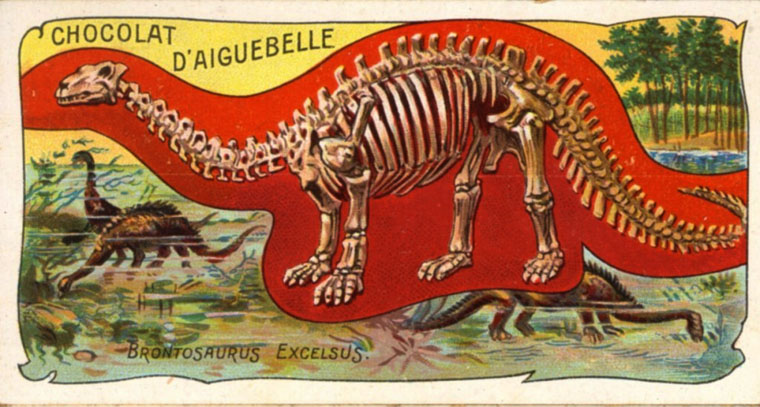A Century Later, Beloved Brontosaurus May Reclaim Its Name
Brontosaurus is back, baby!Generations of schoolchildren have learned that a massive, long-necked dinosaur called Brontosaurus once roamed Earth. But in fact, scientists dropped that name more than a century ago -- referring to it as Apatosaurus instead.
Now, after a thorough analysis of dozens of long-necked specimens, a team of British and Portuguese paleontologists says it's time to revive the old name.
"It's the classic example of how science works," study co-author Dr. Octavio Mateus, a paleontology professor at Universidade Nova de Lisboa in Portugal, said in a written statement. "Especially when hypotheses are based on fragmentary fossils, it is possible for new finds to overthrow years of research."
The backstory. Starting in the 1870s, rival paleontologists Othniel C. Marsh and Edward D. Cope were scouring the American West, competing to find new dinosaurs in what became known as the "Bone Wars."
During Marsh's digs, his team found two incomplete skeletons of massive, long-necked sauropods. Based on one of the skeletons, Marsh announced the discovery of a new dinosaur called Apatosaurus ajax, the "deceptive lizard" in 1877. Then, two years later, he described the second skeleton as belonging to another new species called Brontosaurus excelsus, the "noble thunder lizard."
But after paleontologists collected a specimen with features similar to both Brontosaurus and Apatosaurus, they said the two dinosaurs were too similar to belong to separate genera. And so in 1903, Brontosaurus was re-classified as Apatosaurus excelsus.
A second look. For the new analysis, the researchers spent five years examining the scans and fossils of 81 sauropod specimens. Then they conducted statistical analyses to discover how much the dinosaurs differed, based on 477 specific features, Scientific American reported.
"Our research would not have been possible at this level of detail 15 or more years ago," Dr. Emanuel Tschopp, a paleontologist who led the research while completing his PhD at the Universidade Nova de Lisboa, said in the statement.
Read more here

No comments:
Post a Comment